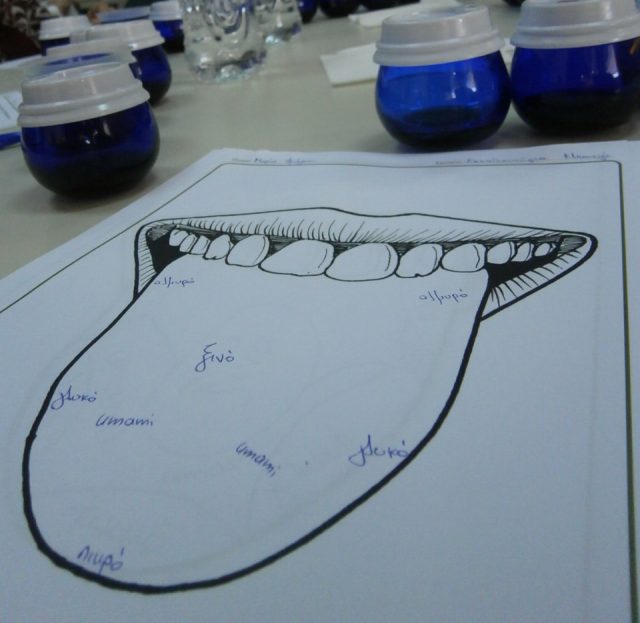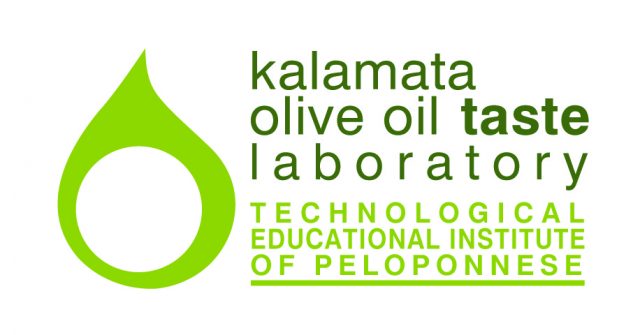
Olive oil tasting is like wine tasting; it’s a sensory experience, an acquired taste. What’s different though is that the law clearly stipulates that only those who have reached the legal drinking age can pick up and savor a glass of wine. That law thankfully does not apply to olive oil. Learning to appreciate olive oil at an early age is an advantage to young adults; it puts them on the right path towards a healthy lifestyle later on.
How soon then can our taste our taste buds start recognizing flavors and distinguish between excellent, mediocre and bad olive oil?
Research carried out in Greece on 190 high school students show that teenagers once they are made aware of the sensory properties, and the analysis of extra virgin olive oil can distinguish between extra virgin olive oil and defective oil. The results also showed that the young adults aged between 13 and 15 years old were able to recognize rancid and muddy sediment in olive oil.
The participants come from Messenia one of the most common olive oil producing regions where olive oil culture is deeply rooted, curious and expansive: they are used to consuming olive oil in their daily diet.
Vasilis Demopoulos, Anna Milionis and Panagiotis Skouras from The Kalamata Olive Oil Taste Laboratory carried out the studies. Trained in sensory evaluation, they are part of a team of 14 professionally trained olive oil tasters lead by Dr. Vasilis Demopoulos, all volunteers from the wider community of Messinia involved in sensory evaluation since 2011. The self- funded laboratory offers sensory analysis services to producers and conducts educational seminars to olive oil professionals and aficionados.
Here’s what the students had to do with the five oils they received from the trainers:
- Decide which of the five oils were extra virgin and which oils were defective
- Rank the extra virgin oils according to intensity, decide which were robust, medium and delicate
- Indicate which oils they preferred
The results:
- The students identified the most common defects of olive oil
- Students often assessed robust and delicate oils as defective
- Discrimination of EVVO’s according to intensity was a challenging task – not suitable for young adults or untrained panel
Students preferred at large medium intensity oils to robust and delicate oils – similar to other consumer studies.
Commenting on the results Anna Milionis who was responsible for the educational material and training of the students said:
“While the ranking of intensity was a challenging task for the students, their preference for medium to delicate olive oils over the robust sample nevertheless showed an awareness of intensity distinction but at the same time the need to re-educate ourselves in the appreciation of bitterness and pungency – hence the health benefits of olive oil.”
The study was funded by the Captain Vassilis and Carmen Konstantakopoulos Foundation, a private non-profit foundation, founded in 2011 to honor Captain Vassilis and Carmen Konstantakopoulos. Its aim is to establish Messinia as a model for sustainable agricultural development, by supporting and promoting related projects. So far it has supported a series of activities, varying from research on local seed varieties to seminars on local gastronomy and products, as well as the promotion of local products’ export.
Dionissis Papadatos, the project manager of the Foundation, said: “The purpose of this action was to introduce the concept of the quality of olive oil to young people who are potential future olive oil producers. Taking into consideration that olive oil quality is directly linked to agronomic, extraction and storage practices, our goal was to highlight the critical points that will give added value to the olive oil of Messinia. The new generation of producers is those who will determine the future of olive oil production in our region.”
If anything, this study shows that appreciation of olive oil and cultural traditions do not necessarily go hand-in-hand. Knowing how to recognize the freshness of olive fruit by smelling and being able to appreciate bitterness and pungency in olive oil is not only a challenge for us adult consumers but more so for children.

[Sources] The article was wrote by Alice Alech in her blog Provencial Provence: a taste of life in the South “Appreciating olive oil can start at any age, the younger, the better .“Vasilis Demopoulos, Anna Milionis et Panagiotis Skouras from The Kalamata Olive Oil Taste Laboratory carried out the studies.

Thank you for that fascinating article! I just shared it on my Greek Liquid Gold: Authentic Extra Virgin Olive Oil Facebook page and website (http://www.greekliquidgold.com/index.php/en/news). It’s great to hear that young people are learning about olive oil tasting. I’d like to see that happen more, both in other parts of Greece and elsewhere. I believe Terra Creta in Crete is working on that, too.
Hi Lisa,
Many thanks for your comment!
What kind of organization is Terra Creta? I am very interested in any kind of work done on the tasting of olive oil!